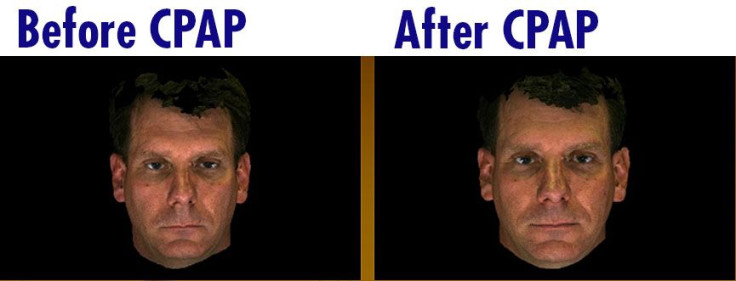How Sleep Apnea Impacts Youthfulness, Attractiveness: More Sleep Makes You Look Better

It’s been said that getting a good night’s sleep is beneficial for not only your mental well-being, but also your physical well-being. According to new research from the University of Michigan Health System and Michigan Technological University, people who have a better night’s sleep age better and look more youthful in the long run.
The study was conducted using 20 middle-aged sleep apnea patients. Over the course of a few months, scientist used a “face mapping” technique and a panel of independent face appearance raters to detect changes after patients used the CPAP system. A CPAP, which stands for continuous positive airway pressure, is one treatment option for sleep apnea. It’s a mask that works by adjusting a person’s air pressure to be high enough so that his or her airway won’t collapse.
“We perceived that our CPAP patients often looked better, or reported that they'd been told they looked better, after treatment. But no one has ever actually studied this," said Roland Chervin, M.D., M.S., director at the University Of Michigan Sleep Disorders Center.
Chervin, alongside University Of Michigan plastic surgeon Steven Buchman, M.D., used photogrammetry to take pictures of the patients before and after the CPAP treatments; they recorded the facial differences.
According to the raters, post-treatment photos looked more attractive two out of three times.
Researchers also noted that there were not any big changes in facial characteristics. “We were surprised that our approach could not document any improvement, after treatment, in tendency to have dark blue circles or puffiness under the eyes," Chervin said. "Further research is needed, to assess facial changes in more patients, and over a longer period of CPAP treatment."
Sleep apnea affects approximately 50 to 70 million U.S. adults, according to the Centers for Disease Control and Prevention. It’s a sleep disorder that causes breathing to repeatedly stop and start. Often, chronic snoring is an indicator of sleep apnea.
There are two types of sleep apnea: obstructive, which happens when the throat muscles relax, and central sleep apnea, which occurs when a person’s brain doesn’t correctly signal the muscles that control breathing.
Chervin and his team are interested in how sleep affects not only people's youthfulness, but also their health on a larger scale.
"We want sleep to be on people's minds, and to educate them about the importance of getting enough sleep and getting attention for sleep disorders," said Chervin.



























